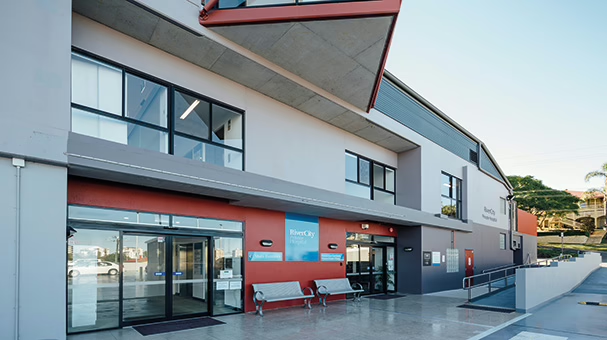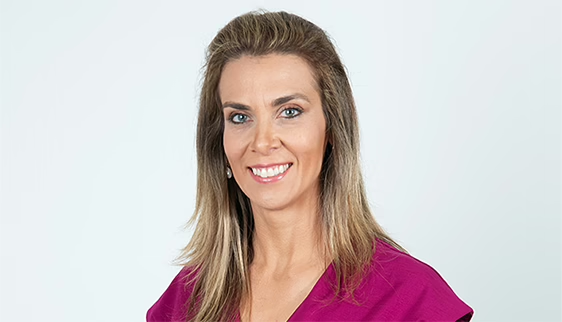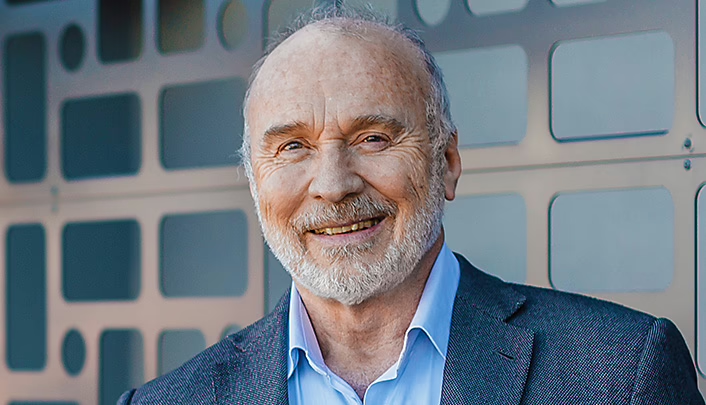Book a consultation
Book a consultation with one of our doctors or at one of our clinics below.
Do NOT use this form in an emergency – contact one of our clinics or your nearest hospital emergency department instead.
Some services may not be performed by your preferred doctor or at your preferred clinic. We will confirm this with you before making an appointment.
Cataract surgery procedures at our Brisbane clinics
Cataract surgery in Brisbane overview
Vision Eye Institute’s skilled ophthalmic surgeons in Brisbane have extensive experience diagnosing and treating cataracts.
Our Brisbane doctors specialise in performing cataract extraction and lens replacement and can advise you if you are a suitable candidate for this operation.
Our surgeons offer both traditional and laser cataract surgery options and will recommend the procedure that is best suited to your needs. Your eye doctor will also discuss lens replacement options and will help you select the right IOL for your lifestyle.
Both traditional and laser cataract surgery are considered safe and effective procedures, leading to better visual outcomes.
To learn more about cataract and lens surgery, visit our cataract & lens services page.
What to expect on the day of your cataract procedure
Cataract surgery is performed in one of our Queensland day surgeries, which are fitted with state-of-the-art equipment and technology to optimise patient outcomes and ensure patient comfort at all times.
On the day of your surgery, a local anaesthetic will be used to temporarily numb your eye area. This is applied via eye drops or by administering a small anaesthetic block around the eye.
Once the area is anaesthetised, your surgeon will make a small incision (2–3 mm in length) into the side of your cornea (the surface of the eye), allowing them to access the capsule containing the cloudy lens. Your surgeon then uses either ultrasonic energy (for traditional cataract surgery) or a femtosecond laser (for laser cataract surgery) to break the eye’s clouded lens into smaller pieces. The lens fragments are then flushed out of the capsule using a vacuum.
After the eye’s natural lens is removed, the clear artificial replacement lens is delicately inserted through the corneal incision and precisely positioned into place. Once the lens is replaced, it is not possible to develop another cataract, making cataract surgery a one-off procedure.
This operation requires only 30 minutes, with the patient returning home within several hours of the surgery.
How much does cataract surgery cost in Brisbane?
Several factors influence the cost of cataract surgery, such as the health of your eyes, the procedure used (traditional or laser cataract surgery), the surgeon’s experience and your chosen replacement lens (premium lenses versus standard monofocal lenses).
Your ophthalmologist will provide you with a detailed quote once your eyes have been assessed and your replacement IOL has been determined (prior to surgery).
Medicare and private health insurance cover part of the cost associated with cataract surgery. However, the gap payment (how much you need to pay out of pocket) will depend on your level of health coverage and your replacement lens selection. You may also be subject to waiting periods and excess payments.
We recommend that you contact your insurer directly to determine if your cover includes cataract surgery and if there is any excess or waiting periods.
Traditional (manual) cataract surgery
Traditional cataract surgery (also known as manual or conventional cataract surgery) involves the ophthalmic surgeon manually completing all cataract removal steps, using hand-held instruments throughout the procedure.
Laser-assisted cataract surgery
During laser-assisted cataract surgery, the ophthalmic surgeon uses a femtosecond laser to complete several steps of the procedure.
While both traditional cataract surgery and laser cataract surgery are safe and effective operations, laser cataract surgery may reduce the risk of complications in some circumstances.
Your ophthalmologist will be able to advise whether femtosecond laser surgery is recommended, as it is not suitable for everyone.
Refractive lens exchange
Refractive lens exchange, also known as clear lens extraction or lens replacement surgery, is a technique used to correct refractive errors, which affect the eye’s ability to see clearly at a range of distances. This form of vision correction is usually reserved for people over the age of 50.
This procedure involves removing the eye’s natural lens and replacing it with an artificial IOL to improve eyesight, including nearsightedness, farsightedness and/or astigmatism.
Refractive lens exchange is a similar procedure to cataract surgery, however, this treatment can be used when no cataract is present on the eye’s natural lens.
Replacement lens options
IOLs are made from soft, flexible plastic and are a replacement for your eye’s natural lens (following cataract extraction or when refractive error correction is required). There are several replacement lens options available.
- Monofocal lenses, also known as standard lenses, allow clear vision at a single distance (i.e. near/reading or far). Following surgery, glasses will still be required for certain tasks.
- Bifocal/multifocal lenses allow clear focus at two distances, usually near (reading) and far vision. Glasses may still be required for tasks performed at intermediate distances, such as computer work.
- Trifocal lenses support clear vision at three distances – near (reading), intermediate and far. This is often the most appropriate lens selection for people who want to avoid glasses use after surgery.
- Extended-depth-of-focus (EDOF) lenses are the latest innovation in lens technology. EDOFs create a single, elongated focal point that enhances the depth of focus, increasing the range of clear vision. After surgery, patients will typically have good unaided distance and intermediate vision, with functional near vision.
- Toric lenses are used to correct pre-existing astigmatism caused by varying curvature of the cornea, leading to blurry or distorted vision.
Your surgeon will take into account your lifestyle and visual preferences when helping you choose the right lens for your needs.
Implantable (phakic) lenses
Phakic implantable lenses are surgically positioned behind the iris, sitting in front of the eye’s natural lens to correct vision. Implantable lenses are comparable to wearing contact lenses inside the eye rather than placing lenses on the surface of the eye.
This procedure is semi-permanent and reversible – the implantable lens can be removed at a later stage should another lens procedure be required.
Is there a waiting period for getting private cataract surgery in Brisbane?
There is no waiting period for private cataract surgery. We usually schedule your surgery within a few weeks of your diagnosis. If you have private health insurance, there may be a waiting period before you can make a claim. Contact your health fund for more information.
How long is the typical wait time for cataract surgery in Brisbane's public hospitals?
Wait periods can be longer than a year in Brisbane’s public hospitals.1,2 You can expect a waiting period before your initial appointment and before you receive surgery on each eye. Private cataract surgery offers minimal wait times among other benefits such as choice of surgeon and more extensive lens replacement options. Learn more about private cataract surgery.
References:
1. Huang-Lung J, Angell B, Palagyi A et al. The true cost of hidden waiting times for cataract surgery in Australia. Public Health Res Pract 2022 Oct 12;32(3):31342116.
2. Australian Medical Association (AMA). Shining a light on the elective surgery ‘hidden’ waiting list. AMA; 2022. Available at <https://www.ama.com.au/elective-surgery-hidden-waiting-list> [Accessed online 8 November 2023].
Are the costs for cataract surgery different in Brisbane compared to other Australian cities?
At Vision Eye Institute, the cost of cataract surgery is comparable across all our clinics Australia-wide. The final price will be affected by factors such as whether you have traditional or laser cataract eye surgery, which type of replacement lens implant is selected and whether you have private health insurance.
How do Brisbane cataract surgery costs compare between public and private facilities?
In public facilities, cataract surgery is free, but wait times may be long – sometimes longer than a year.1,2 In private facilities, cataract surgery is partially covered by Medicare and private health insurance, although there may be out-of-pocket costs. Private facilities have a wait time of a few weeks, although there may be a waiting period before you claim with your private health insurer. Contact your health fund for details.
References:
1. Huang-Lung J, Angell B, Palagyi A et al. The true cost of hidden waiting times for cataract surgery in Australia. Public Health Res Pract 2022 Oct 12;32(3):31342116.
2. Australian Medical Association (AMA). Shining a light on the elective surgery ‘hidden’ waiting list. AMA; 2022. Available at <https://www.ama.com.au/elective-surgery-hidden-waiting-list> [Accessed online 8 November 2023].
Are cataract surgery costs covered by Medicare or private health funds in Brisbane, or will there be a gap payment?
Some, but not all, of the costs of cataract surgery are covered by Medicare, and if you have private health insurance, your insurer will also cover some of the cost (depending on the type of cover you have). The gap payment will depend on several factors, including your level of private health cover and the replacement lens option you choose. We’ll go through all costs clearly at the time of your appointment.
Public cataract surgery is fully covered by Medicare but often involves long waiting periods, sometimes exceeding a year.
How do I pay? Do you offer payment plans for cataract surgery?
You will need to pay for your cataract surgery in full before your procedure. We accept all payment types, including cash, credit card and direct deposit.
Alternatively, you could look into early release of your superannuation to cover some of the costs, such as the Australian Taxation Office’s ‘Early access to super’ (contact the ATO directly).
We offer buy now, pay later options for cataract surgery through SurgeryAssist at Vision Hospital Group day surgeries in partnership with humm* loan. Speak to our friendly clinic team for more information.
*Approval subject to credit assessment criteria. Fees and charges, terms and conditions and minimum purchase amounts apply. Credit provided by Once Credit Pty Limited (ABN 99 112 319 632, Australian Credit Licence No. 386194), a subsidiary of humm group limited.
What is SurgeryAssist?
SurgeryAssist helps you access cataract surgery at Vision Hospital group day surgeries without private health insurance.
By self-funding your surgery, you can skip long wait times and get the care you need now. It also means you can choose a surgeon you trust, schedule your surgery for a time that suits you, and tailor your surgery to fit your lifestyle.
With SurgeryAssist, you only need to make one all-inclusive payment* – there are no surprises.
Learn more and make an enquiry on the Vision Hospital Group website.
Do I need a referral from my GP to see a cataract surgeon in Brisbane?
You will need a referral from either a GP or optometrist to see a cataract surgeon anywhere in Australia. This referral also ensures that Medicare can rebate part of your appointment and surgery. Once you have your referral, you can book online or call one of our clinics directly.
How do I prepare for cataract surgery if I'm based in one of Brisbane's suburbs or surrounding regions?
To prepare for your surgery:
- Do not wear contact lenses before your surgery. Your doctor will advise you on the specific time frame. Usually, it is between three days and two weeks
- Wash your face thoroughly the night before to remove all traces of skincare or makeup
- Do not wear any skincare or makeup on the day
- Wear comfortable, loose-fitting clothes on the day
- Have nothing to eat or drink six hours before your procedure – small sips of water are allowed
- Follow any medication changes your doctor has advised for your surgery
- Organise for someone to drive you home after your procedure
- Bring a good podcast or your favourite playlist to listen to while you wait. Although the procedure takes 30 minutes, there is some waiting while we prepare for your surgery.
Check out our cataract and lens surgery brochure for more information. You can also contact one of our clinics if you have any questions.
What's the average time between initial consultation and the surgery date in Brisbane clinics?
Usually, we can organise your surgery a few weeks after your initial consultation. If you wish to claim private health insurance, there may be an additional waiting period before you can do so. Contact your health fund for details.
Our cataract surgeons in Brisbane
Our team of respected and experienced ophthalmologists are skilled in performing routine and complex cataract surgery and refractive lens exchange, with additional expertise in intraocular lens technology. They are committed to ensuring the highest standard of patient care, as well as providing the Queensland community with access to the latest in ophthalmic technology.
Our cataract and lens surgery clinics in Brisbane
Cataract surgery consultations are available at our eye clinics in Brisbane, Mackay and Townsville. Cataract surgery and lens procedures are performed at our dedicated day surgeries, which are equipped with state-of-the-art technology to support best practice techniques that optimise patient outcomes.
-

Brisbane
- 07 3736 3015
- Email us
-
Level 2, 401 Milton Rd
Auchenflower 4066 qld -
M–F 7 am–4 pm
Sat Closed
Sun Closed

